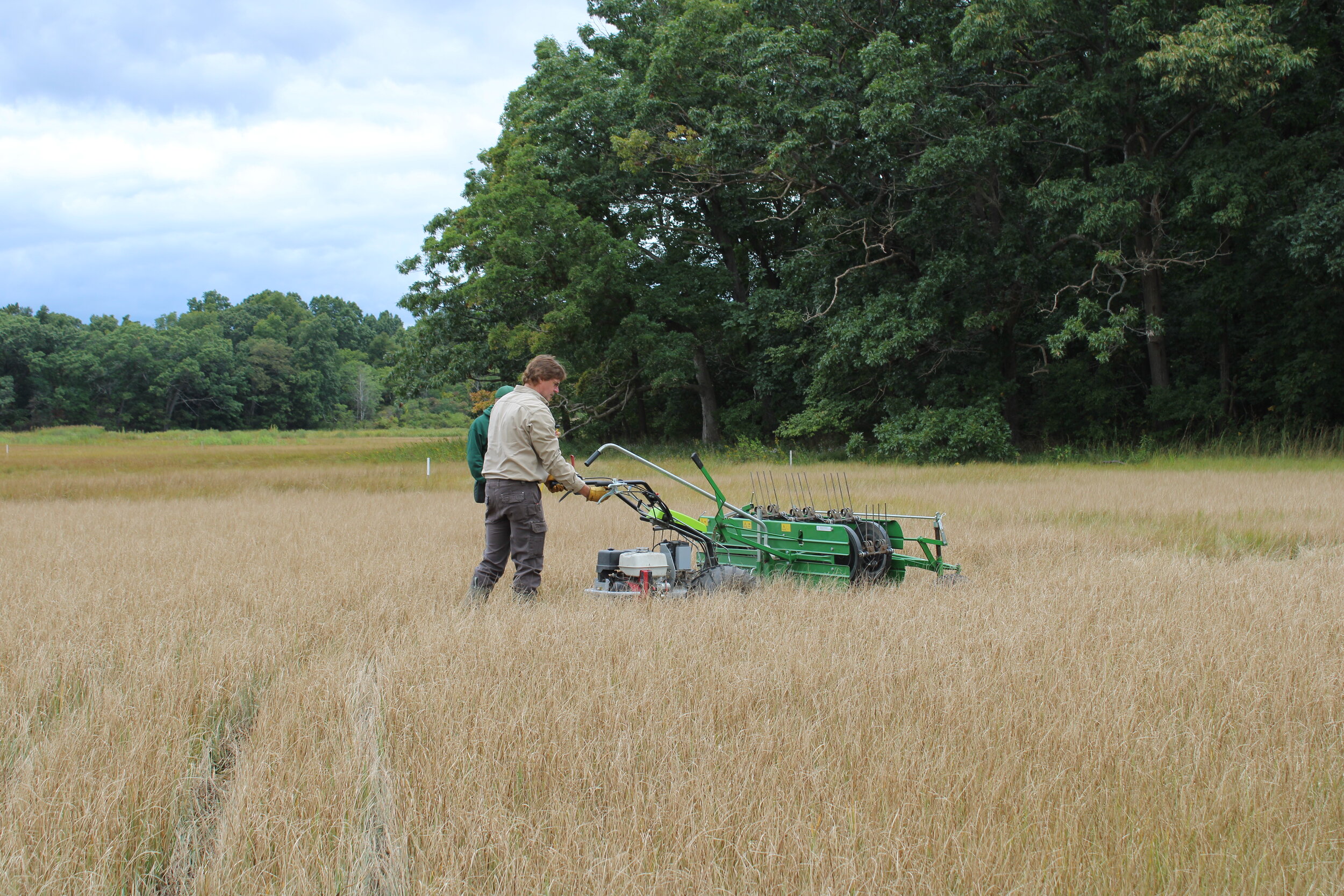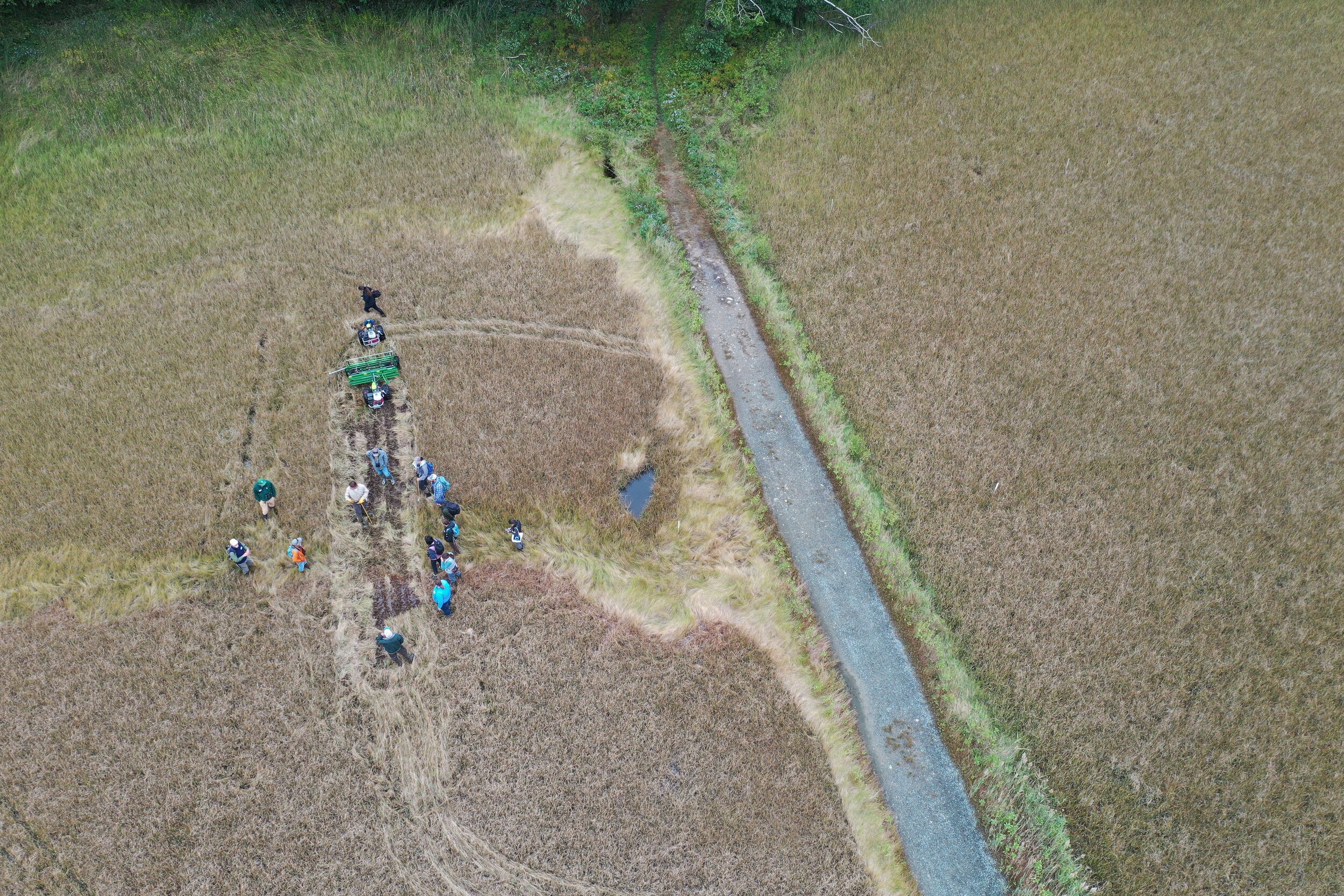A group of partner organizations, supporters, and friends recently joined The Trustees and Mass ECAN for a walking tour of the salt marsh restoration underway at Old Town Hill in Newbury.
The September 30 tour, part of Mass ECAN’s Fall Event Series, included a demonstration of the nature-based ditch remediation being used to help heal the site. This portion of marsh, like much of the Great Marsh ecosystem, has had its natural draining ability compromised by historic ditching, leaving it increasingly vulnerable to floods.
Geoff Wilson, lead contractor and inventor of the restoration technique, provided updates on how the process is already beginning to see results, alongside Trustees coastal ecologist Sarah Towle. Towle noted that in doing regular mosquito monitoring at the site, a year-over-year percentage of “dry” areas (where no standing water occurs to sample larvae) increased from 8.9% in 2020 to 25% in 2021—a statistically significant decrease in standing water on the marsh, as its natural draining processes begin to heal.
“A healthy marsh is a marsh that allows water to come in during high tide, and drain itself of that water during low tide, without retaining standing water,” said Russell Hopping, Trustees Lead Ecologist, Coastal Ecology. “The marsh needs to flood but if it retains too much water it will drown the plants, killing them, which over time causes the marsh to subside due to root loss. The goal of this project is to restore healthy marsh, and the natural function of the marsh, by fixing the current broken hydrology so that it can continue to thrive as an ecosystem and habitat, and keep pace with sea level rise.”
The restoration technique begins with the cutting of salt marsh hay on-site, using walk-behind mowers. The hay is then secured into the bottom of roughly 50% of the ditches using natural twine and stakes. Once secured into the ditches the hay naturally traps sediment from the tides, rebuilding the salt marsh “peat” from the bottom-up. This effectively restores the marsh’s natural draining processes and increases the flow in the remaining ditches to prevent clogs and deliver much needed sediment to the surface of the marsh.
The restoration phase of the 3-5 year project launched in April 2020, with the 85-acre Old Town Hill parcel, and the start of permitting work for an additional three parcels in Newbury, Essex, and Ipswich. A second year of restoration work began in April 2021 at Old Town Hill and is anticipated to launch next at the Crane Reservation in Ipswich, and the Crane Wildlife Refuge in Essex this fall, weather-dependent.
In spring 2021 a $1m grant from the North American Wetlands Conservation Act (NAWCA) quadrupled the Great Marsh acreage being restored, to a total funded scope of 1,274 acres in Newbury, Essex, and Ipswich. The additional land funded through the grant is owned by The Trustees (689 acres), Greenbelt (141 acres), and the Massachusetts Division of Fisheries and Wildlife (86 acres).
To explore photos of the site visit, scroll through the gallery below, and to learn more about this work click here. Questions? Email coast@thetrustees.org.
(Aerial images courtesy Amanda Grace Davis/UMass Amherst)















